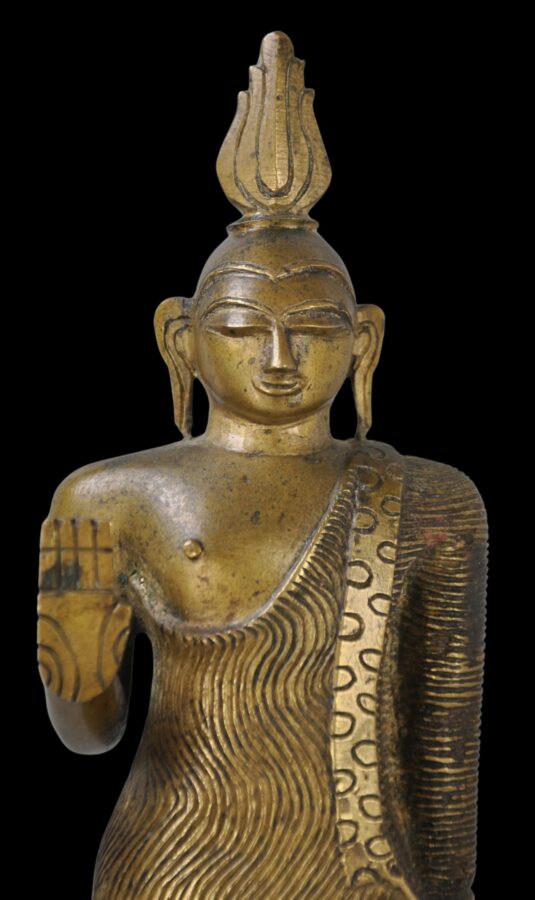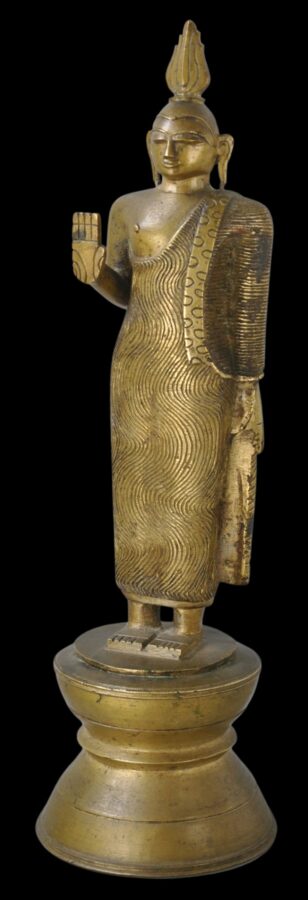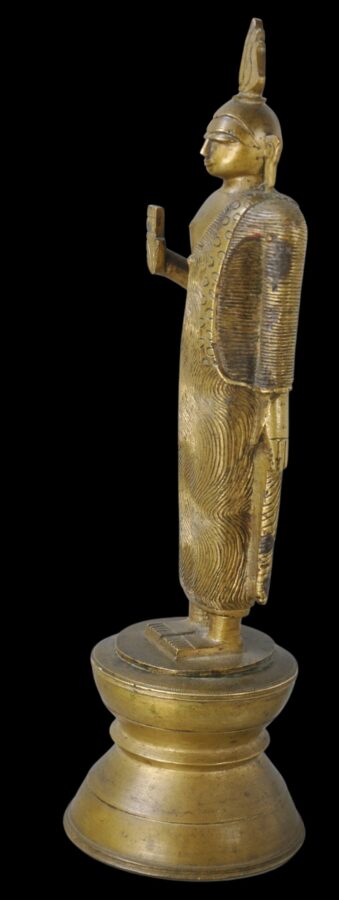Enquiry about object: 9576
Kandyan Period Cast Brass Standing Buddha
Sri Lanka 18th century
height: 24.6cm, diameter of base: 7.6cm, weight: 1,097g
Provenance
UK art market
This fine example of a Kandyan-style standing Buddha on an hour-glass shaped pedestal, is finely cast in brass.
The stylised pose; the broad, square shoulders; the rectangular feet with toes all the same length; the rectangular form of the hand; the pear-shaped, prominent, flaming unisha or sirispata (crown protuberance) that rises from the head; the exposed right nipple; the round face with downcast eyes; and thin, long eyebrows – are all characteristic of Kandyan Buddha sculptures of the 18th century. Certain standards employed in the preparation of wax models (used in casting) contributed to this stylistic consistency.
The robes or civara are long and folded in a typical way for a Kandyan 18th century standing depiction of the Buddha. They are decorated with deep, wavy lines, front and back. The robe sash on the front unusually is decorated with small roundals,
The Buddha stands with his right hand held aloft in the jnana mudra (‘teaching’) position.
Kandy was the last capital of the Sinhalese monarchy from 1469 to 1818, under the Kingdom of Kandy. It was also the religious capital and home to a vibrant religious brass casting industry.
The image here is in fine condition. There is some age-related mottling to the brass here and there.
References
Coomaraswamy, A.K., Bronzes from Ceylon, Chiefly in the Colombo Museum,Colombo Museum, 1914 (reprinted 1988).
Coomaraswamy, A.K., Mediaeval Sinhalese Art, Pantheon Books, 1956 reprint of the 1908 edition.
Phoenix Art Museum, Guardian of the Flame: Art of Sri Lanka, Phoenix Art Museum, 2003.
De Silva, P.H.D.H., A Catalogue of Antiquities and Other Cultural Objects from Sri Lanka (Ceylon) Abroad,National Museums of Sri Lanka, 1975.









